Plenary Lectures
‘Shakespeare Bites Back! Professor Stanley Wells and Dr Paul Edmondson Stand Up for Shakespeare as the Author of his Works’
Provoked in part by Roland Emmerich’s film Anonymous, Professor Stanley Wells and Dr Paul Edmondson are leading an ambitious and vigorous campaign on behalf of The Shakespeare Birthplace Trust in defence of Shakespeare’s authorship of his works. In this entertaining and informative presentation they will discuss the rise of the phenomenon of anti-Shakespearianism, demonstrate its fallacies, and propose some strategies to counteract it.
‘Getting Past Two Dimensional Staging’ ~ Professor Andrew Gurr (University of Reading, the Globe Theatre and Rose Theatre)
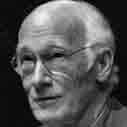 With reference to reconstructions of the Globe and to the forthcoming reconstruction of the Blackfriars theatre, this paper will discuss the importance of thinking beyond the two-dimensional staging techniques which we have inherited as a legacy of proscenium arch theatres, in order to realise the depth in Shakespearean dramaturgy.
With reference to reconstructions of the Globe and to the forthcoming reconstruction of the Blackfriars theatre, this paper will discuss the importance of thinking beyond the two-dimensional staging techniques which we have inherited as a legacy of proscenium arch theatres, in order to realise the depth in Shakespearean dramaturgy.
‘Men Who Weep: Affective Politics in the English History Play’ ~ Professor Jean E. Howard (Columbia University)
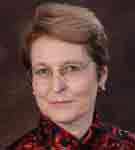 It is a commonplace that Richard II juxtaposes the pragmatic politics of Henry Bolingbroke and Richard II’s poetic dramatizations of his inner life. In this paper, besides in Richard II, I want to explore the link between affect and politics in several English history plays including Anthony Munday’s The Downfall and The Death of Robert Earl of Huntington and Shakespeare’s 2 Henry IV In the Munday plays, like a figure from Drayton’s Heroical Epistles, Huntington laments, grieves, and complains, assuming a feminized position at odds with the received tradition of Robin Hood active in his own revenge and in the service of a distant King. Yet the pathos created by Huntington’s self-dramatization is central to the play’s complicated political engagement with questions of tyranny and political resistance. In Shakespeare’s play, I want to engage with the Hal who weeps/almost weeps/talks of weeping/is reported to weep to argue that Shakespeare is self-consciously addressing the impossibility of separating affect from a politics of princely self-presentation.
It is a commonplace that Richard II juxtaposes the pragmatic politics of Henry Bolingbroke and Richard II’s poetic dramatizations of his inner life. In this paper, besides in Richard II, I want to explore the link between affect and politics in several English history plays including Anthony Munday’s The Downfall and The Death of Robert Earl of Huntington and Shakespeare’s 2 Henry IV In the Munday plays, like a figure from Drayton’s Heroical Epistles, Huntington laments, grieves, and complains, assuming a feminized position at odds with the received tradition of Robin Hood active in his own revenge and in the service of a distant King. Yet the pathos created by Huntington’s self-dramatization is central to the play’s complicated political engagement with questions of tyranny and political resistance. In Shakespeare’s play, I want to engage with the Hal who weeps/almost weeps/talks of weeping/is reported to weep to argue that Shakespeare is self-consciously addressing the impossibility of separating affect from a politics of princely self-presentation.
‘Smiles That Reveal, Smiles That Conceal’ ~ Professor Bob White (University of Western Australia)
In The Anatomy of Melancholy Burton, no less observant than Shakespeare of the smile, feigned or ingenuous, wrote suggestively that The eye is a secret orator, the first bawd’, and he amplifies:
[Eyes] reveal our thoughts … I may say the same of smiling, gait, nakedness of parts, plausible gestures, &c. To laugh is the proper passion of a man, an ordinary thing to smile; but those counterfeit, composed, affected, artificial and reciprocal, those counter-smiles are the dumb shows and prognostics of greater matters, which they most part use, to inveigle and deceive; though many fond lovers again are so frequently mistaken, and led into a fool’s paradise.
The smile as gesture carrying meaning to witnesses, and as an agent of change in others, recurs throughout Shakespeare, sometimes in the form of a lover’s guileless manifestation of inner pleasure, at others a proof of Duncan’s astute observation, ‘’There’s no art / To find the mind’s construction in the face’ since as Hamlet reflects, ‘one may smile and smile and be a villain’. And then of course there is the most famous but incongruously smiling man in all drama, Malvolio:
… he does smile his face into more lines than is in the new map with the augmentation of the Indies: you have not seen such a thing as ’tis. I can hardly forbear hurling things at him. I know my lady will strike him: if she do, he’ll smile and take’t for a great favour.
In this paper I aim to explore the smile as raising profound questions and paradoxes about ‘depth-surface-meaning’ in Shakespeare’s plays.
‘From the Inside-out: Fifty Years of Making Meaning at the RSC’ ~ Cicely Berry in Conversation with Alycia Smith-Howard, author of Studio Shakespeare: The Royal Shakespeare Company at The Other Place (Ashgate, 2006)
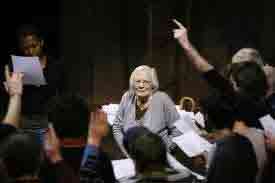 This presentation is a conversation with legendary RSC Voice Director, Cicely Berry, Hon.D.Litt, OBE, CBE. Cicely Berry, renowned around the globe for her work on voice and text, joined the Royal Shakespeare Company in the 1960s, and has been a source of inspiration, guidance and direction throughout the Company’s remarkable history of producing Shakespeare. To commemorate the RSC’s 50th birthday, Cicely Berry will share her thoughts on the RSC’s success at ‘making meaning’ in the theatre for the last half-century, and the process of exploring Shakespeare from the inside out.
This presentation is a conversation with legendary RSC Voice Director, Cicely Berry, Hon.D.Litt, OBE, CBE. Cicely Berry, renowned around the globe for her work on voice and text, joined the Royal Shakespeare Company in the 1960s, and has been a source of inspiration, guidance and direction throughout the Company’s remarkable history of producing Shakespeare. To commemorate the RSC’s 50th birthday, Cicely Berry will share her thoughts on the RSC’s success at ‘making meaning’ in the theatre for the last half-century, and the process of exploring Shakespeare from the inside out.
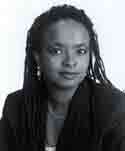 Under discussion will be a choice selection of landmark RSC productions from the Company’s remarkable catalogue of theatrical productions of Shakespeare plays from 1960-2011. Cicely Berry will be joined in conversation by RSC performance historian, Alycia Smith-Howard, and their engaging dialogue will be accompanied by slides of production stills, photographs from rehearsals, images and clips from various, key RSC productions.
Under discussion will be a choice selection of landmark RSC productions from the Company’s remarkable catalogue of theatrical productions of Shakespeare plays from 1960-2011. Cicely Berry will be joined in conversation by RSC performance historian, Alycia Smith-Howard, and their engaging dialogue will be accompanied by slides of production stills, photographs from rehearsals, images and clips from various, key RSC productions.
‘Shakespeare and Aesthetic Identity: Depth / Surface / Meaning’ ~ Professor Stuart Sillars (University of Bergen)
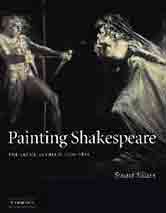 While paintings of the plays are becoming better known, the issues that they raise about their status and identity remain uncertain. How far do they intersect with, or record, practices of performance or editing? To what degree are they to be understood only within the artistic styles and conventions of painting and criticism of their own time? How may they be woven into larger processes of interpretation? This lecture will explore these and other questions, addressing the relation of paintings to wider practices of perceiving, reading and configuring the plays and attempting to define more fully the generative ambivalences that such images offer.
While paintings of the plays are becoming better known, the issues that they raise about their status and identity remain uncertain. How far do they intersect with, or record, practices of performance or editing? To what degree are they to be understood only within the artistic styles and conventions of painting and criticism of their own time? How may they be woven into larger processes of interpretation? This lecture will explore these and other questions, addressing the relation of paintings to wider practices of perceiving, reading and configuring the plays and attempting to define more fully the generative ambivalences that such images offer.
‘The Tempest at 400: Verona: “Abstraction and Allegory”: Making The Tempest Mean’ ~ Professor Kathleen McLuskie (Emeritus Professor, The Shakespeare Institute, University of Birmingham)
This paper will explore the critical and performative strategies for making meaning out of The Tempest that remain available in the first decade of the 21 century. It will argue that this question of meaning is central to the contested cultural-value of Shakespeare in the new century and that new theatrical forms present considerable challenges to the critical alignment of meaning and performance on which that value increasingly depends.


